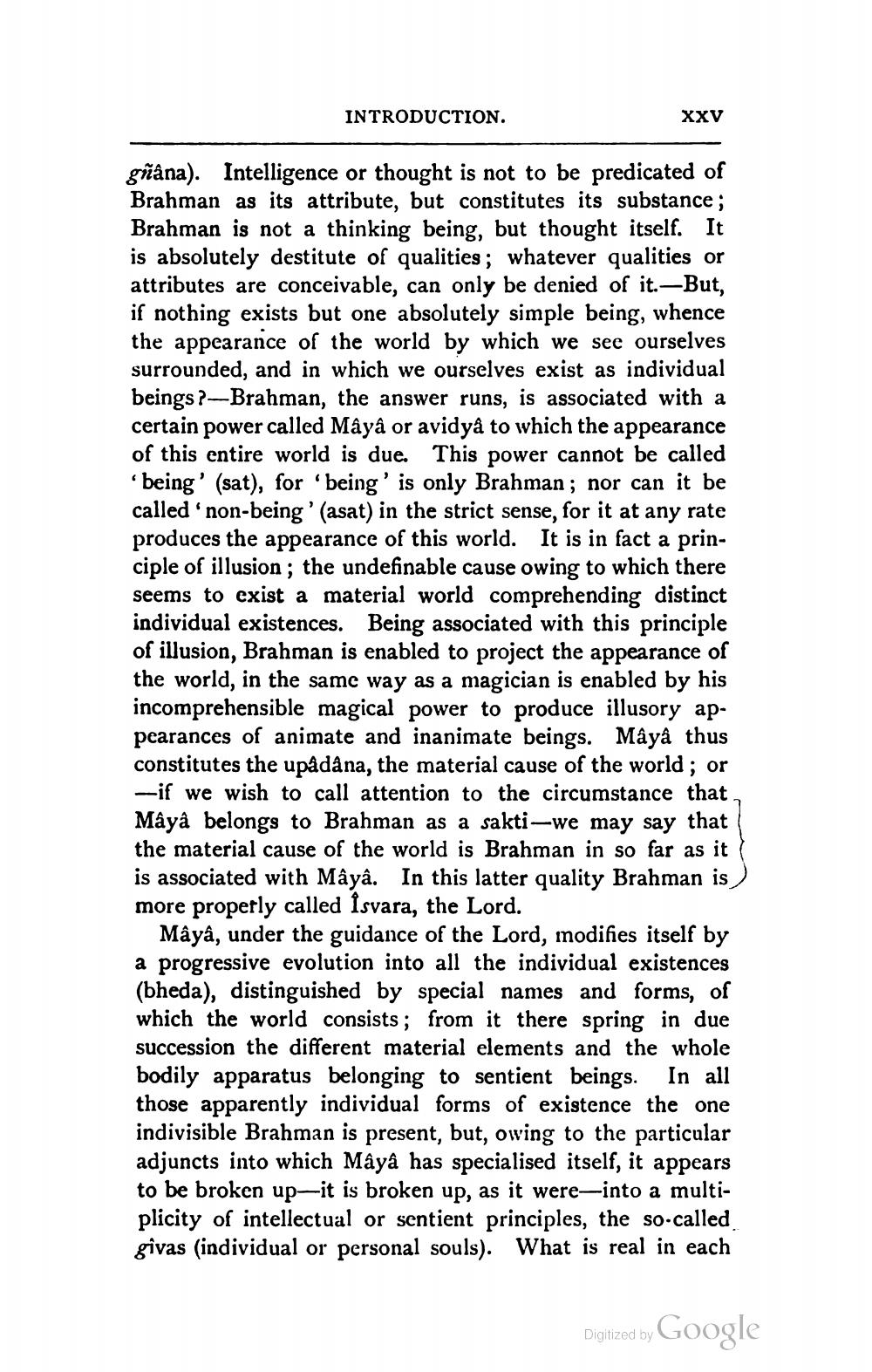________________
INTRODUCTION.
XXV
gñâna). Intelligence or thought is not to be predicated of Brahman as its attribute, but constitutes its substance; Brahman is not a thinking being, but thought itself. It is absolutely destitute attributes are conceivable, can only be denied of it.—But, if nothing exists but one absolutely simple being, whence the appearance of the world by which we see ourselves surrounded, and in which we ourselves exist as individual beings ?-Brahman, the answer runs, is associated with a certain power called Mâyâ or avidyå to which the appearance of this entire world is due. This power cannot be called
being' (sat), for being' is only Brahman; nor can it be called 'non-being' (asat) in the strict sense, for it at any rate produces the appearance of this world. It is in fact a principle of illusion; the undefinable cause owing to which there seems to exist a material world comprehending distinct individual existences. Being associated with this principle of illusion, Brahman is enabled to project the appearance of the world, in the same way as a magician is enabled by his incomprehensible magical power to produce illusory appearances of animate and inanimate beings. Mâyà thus constitutes the upadana, the material cause of the world; or -if we wish to call attention to the circumstance that, Mâyâ belongs to Brahman as a sakti --we may say that the material cause of the world is Brahman in so far as it is associated with Mâyâ. In this latter quality Brahman is more properly called Isvara, the Lord.
Mâyâ, under the guidance of the Lord, modifies itself by a progressive evolution into all the individual existences (bheda), distinguished by special names and forms, of which the world consists; from it there spring in due succession the different material elements and the whole bodily apparatus belonging to sentient beings. In all those apparently individual forms of existence the one indivisible Brahman is present, but, owing to the particular adjuncts into which Mâyâ has specialised itself, it appears to be broken up-it is broken up, as it were—into a multiplicity of intellectual or sentient principles, the so-called givas (individual or personal souls). What is real in each
Digitized by Google
Digitized by




